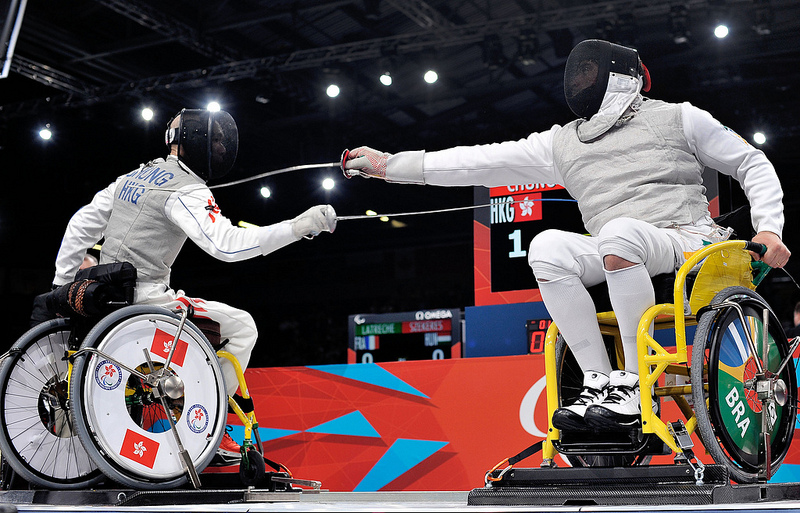Wheelchair fencing

History
Wheelchair fencing dates back to 1953, when it was originally developed by German doctor and father of the Paralympic movement Ludwig Guttmann. The sport is aimed at athletes with locomotor impairment. It is one of the most traditional sports of the Paralympics and has been in the programme since the first edition of the Games in Rome 1960.
The sport follows the rules established by the International Fencing Federation (FIE), but is actually managed by the Fencing Executive Committee of the International Paralympic Committee (IPC).
During competition, 4m by 1.5m courts are used and the wheelchairs are fastened to the floor. Athletes compete in three events: foil, épéé and sabre.
In London 2012, Brazil won its first ever medal in the sport. Jeovane Guissone beat Chik Sum Tam from Hong Kong 15-14, scooping up the gold.
Classification
Class 1A
Athletes with no sitting balance, who have a handicapped playing arm, no efficient elbow extension gravity and no residual function of the hand. In this case, it is necessary to fix the weapon with a bandage;
Class 1B
Athletes with no sitting balance, who have a handicapped playing arm. They have functional elbow extension, but no finger flexion. In this case, the weapon is fixed with a bandage;
Class 2
Athletes with sitting balance and good fencing arm. Paraplegia type T1/T9 or incomplete tetraplegia with minimally affected fencing arm and good sitting balance;
Class 3
Athletes with good sitting balance, without support of legs and normal fencing arm. Subjects with double above the knee amputation or incomplete lesions below D10 or comparable disabilities, able to keep sitting balance;
Class 4
Athletes with good sitting balance with the support of lower limbs and good fencing arm, in addition to C4 lesions of comparable disabilities
The events
Brazilian Paralympic Committee (CPB)
Site: www.cpb.org.br
E-mail: contato@cpb.org.br
International Paralympic Committee (IPC): www.paralympic.org


